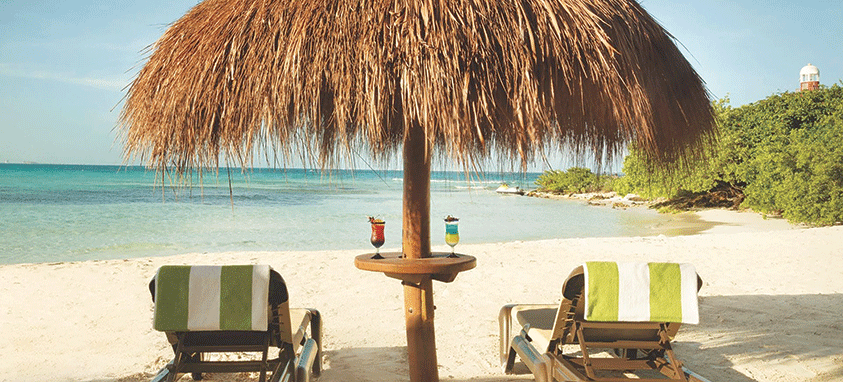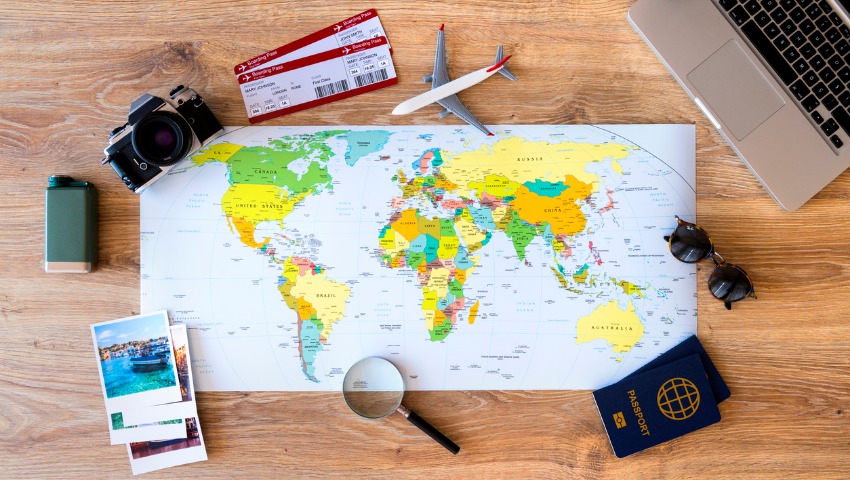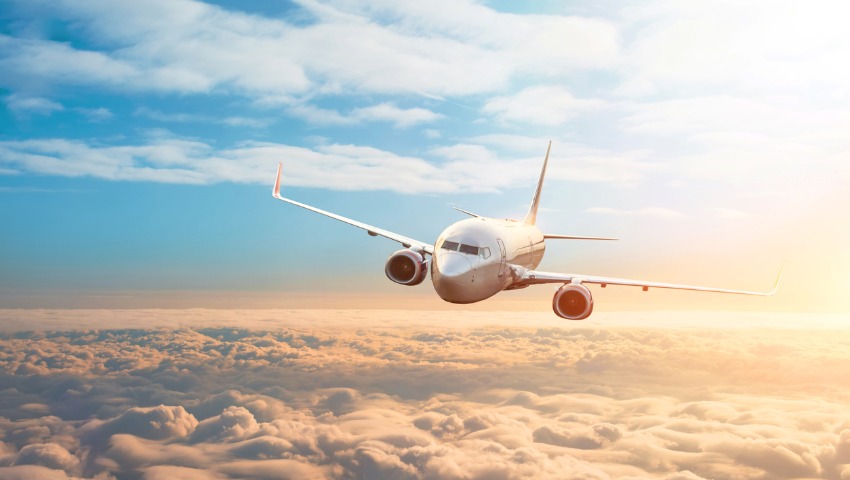One of the side effects of a global pandemic is an outbreak of uncertainty. Meeting professionals are left wondering about the very foundation of their missions. Will the MICE world ever be the same again? Will travel be acceptable, let alone incentivizing, after fear of physical contact has spiked higher than a mountaintop over the last four months? Can all-inclusive properties help ease minds and ensure safety? According to veteran incentive planners, the answers are: “yes, with some modifications,” “most definitely” and “absolutely.”
In fact, experts say you can take the lemons and turn them into lemonade.

One of these calming voices has 30 years of experience planning incentive trips all over the world for the likes of Barclays Bank. Australia-native Damion Breust is a member of Accor’s MICE Advisory Board. From his lockdown in Greece, he has been busily planning for what he calls “the post-COVID New World.”
See also: The New Corona Reality
Thriving in that world, he says, begins with putting the situation in perspective. The financial crisis, terrorist attacks and SARS (Severe Acute Respiratory Syndrome) all caused panic, and each was described, with some justification, as unprecedented.
“But we recovered. Remember that, even as you look at the awful news each day. We came back,” he says.
Safer than Home

Planners learned to adapt to new circumstances, businesses invested and grew, and the world continued to turn. “That will be the case this time, too,” he proclaims with confidence. In the meantime, planners will have to do whatever it takes to ease attendees’ fears. “Just as we worked with our travel partners on new security measures post-9/11, we will do the same after COVID-19,” he says.
That sense of comfort will require meeting, or even exceeding, health guidelines, so attendees can be confident they are as safe, maybe even safer, on a planned and tightly managed incentive trip than they would be at home. “That means a lot more than a few masks and a pamphlet on social distancing. It means knowing everything we can and controlling everything we can, from seating in a restaurant to the cleaning and sanitizing in a hotel, and a hundred other details,” Breust says, ticking off the checklist of items that will be added to planner duties.
All-inclusive properties are stepping up to manage a host of items from that list. Just as they have long prided themselves on providing everything for a stress-free escape, properties are now putting the pieces in place for a safe leadership retreat. You can expect to see fewer buffets (unless they have servers) and more hand-sanitizing stations, but Breust recommends checking out the property yourself to be sure before you commit. In fact, he says doing two site inspections is best, so then you know more precisely what your group will find. Some properties have taken out the guess work by aligning with established cleanliness standards.
One such example is Grand Fiesta Americana Coral Beach Cancun, which operates based on the Posadas Travel with Confidence Program, a training protocol approved by U.S. Environmental Protection Agency. The luxury property has added glass shields at the registration desk, grab-and-go culinary offerings, touchless ordering and even poolside lounge chairs set up at safe distances while preserving unobstructed views of the pristine beach.
Nearby, Haven Riviera Cancun Resort and Spa started welcoming guests back on July 11 with increased cleaning regimens and—just in case—easy access to on-call doctors, nearby hospitals and local pharmacies (with room delivery service). And for those looking for extra peace and quiet, Serenity Club Oceanfront Suites offers exclusive access and premium aromatherapy and wellness amenities.
Velas Resorts makes a Stay Safe Commitment at its six properties in Mexico with a hygiene program based on World Health Organization guidelines that includes thermal testing of guests and staff.
Another all-inclusive luxury brand with locations in Mexico, Jamaica and the Dominican Republic, AMResorts, is certified through a third-party CleanComplete Verification for its elevated room cleaning, sanitation and operational procedures.
Redefining Incentive

Even once guests’ fears have been allayed, however, incentive travel may not come back exactly the way it was—and that could be a good thing, according to Breust. At least initially, travel could be more regional, green and immersive.
“We will need to have a new understanding of what we mean by ‘incentive,’” Breust suggests. One way of thinking about rewards may simply be saying, “Thank you for standing by us when we needed you.” Instead of only rewarding employees for performance, perhaps companies will begin recognizing business partners for their loyalty. “There are many ways to send that message, but it will need to be tailored to post-COVID-19 budgets, markets and sensitivities,” he says.
Breust continues: “I am absolutely certain we will see a return in demand for rewards and incentives. It will be up to those of us who work in the industry to understand how much things have changed and adapt our ideas. Just as procedures changed after those other challenges with the addition of metal detectors and airport screening, event planners will be tasked with ensuring measures are in place to make any incentive, especially travel, not just safe and rewarding, but appropriate.”
By appropriate, Breust means working with communities and their businesses so that incentive travel has a double impact—lifting up attendees as well as those who desperately need to restart their livelihoods again. The concept of incentive as CSR is hugely motivating, he says. Regional travel that supports local venues could be more popular than ever.
Breust thinks groups anchoring in the safe space of an all-encompassing destination should take day trips to experience the local culture (with safe practices in place, of course). “We have so much that is beautiful and inspirational all around us. We should learn to enjoy it and appreciate it more than we have in the past,” he says.
One aspect of our disrupted lives many of us might want to keep is the earth-positive impact of slowing down. “I expect that we will see more awareness of the need and opportunity for travel to have a different environmental impact, maybe even a positive one, as the world opens up again,” he says.
7 Questions to Ask Before Booking that Incentive Travel Package

With so many changes on the horizon, Damion Breust suggests that incentive planners ask these questions to better understand the landscape they will encounter as we all emerge, blinking, from our quarantine spaces.
How do potential attendees feel about travel?
Ask. Do a survey to find out where awardees are emotionally. Chances are, some will have doubts and fears. Many people are likely to be at least a bit hesitant for awhile, and it is important to be respectful of this. Take the time to explain all precautions and safeguards, in detail, upfront.
How can we make the best of a difficult situation and maybe even have a bigger impact?
With all incentives or meetings, there is a big high after the event. This normally lasts a month or so. We can use the idea of an incentive as even more of a morale booster —especially after the tough times of recent months—by front-loading engagement, making more innovative use of technology and connections, and maintaining some activities beyond the end of the incentive event itself.
A more interactive program that starts months before the event with videoconferencing to introduce everyone and education around the history and culture of the destination will make it more meaningful. Adding motivational speakers, cooking classes and experiences will create more excitement and engagement.
How can we overcome fear of social contact?
Make “social distancing” and essential hygiene work for you. Consider a buy-out of the hotel, which will ensure that you will interact with no other guests. Spread room bookings throughout the hotel. All-inclusive packages were designed to remove the friction points of payment and can be customized to fit your needs.
How can we turn worries about the venue into a positive message?
Share details of the hotel’s enhanced cleaning and hygiene processes, which should include such steps as temperature checks for all staff and guests on arrival, hand sanitizing, masks and regular surface cleaning. Ask the hotel to keep guests updated with brief notices about on-site precautions, the timing of housekeeping and cleaning activities.
How can we use space to advantage, instead of making people feel uncomfortable?
Encourage delegates to spread out and enjoy more elbow room than normal. If you have a group of 100 people, book a ballroom for 400. You can make the space feel cozy with clever use of lighting and props.
For flights, choose business class if possible, or book airlines which are leaving middle seats empty in economy class.
For ground transportation, spread delegates out on buses, even if it means more vehicles, and think of bringing in other transportation options with a healthy undertone, such as walking or cycling.
How will we greet our guests?
Bring a cultural element to your safety measures. For much of the world, a handshake is not the preferred form of greeting. Why not learn, for example, from Asia, where the palms-together prayer gesture is an accepted greeting, or even something like an elbow bump. It takes the awkwardness out of greetings and introduces a common bond.
How can we protect our budget from the next disaster?
Just as in so many things, the coronavirus disruption sped up trends that were already happening. The 2018 Incentive Travel Industry Index published by Society for Incentive Travel Excellence Incentive Research Foundation and Financial and Insurance Conference Professionals found that more than 80 percent of event planners are being asked to reduce costs. That will only increase as companies try to make up for revenue lost in the second quarter of the year.
Erin Wendell, senior director of event management at Maritz Travel, pointed to all-inclusives as a way to protect the bottom line for both the company and attendees— because neither will have to worry about surprise costs.
Wherever you stay, Breust suggests taking a long, hard look at the contract before signing. “We can expect major revisions to all travel contracts after COVID-19,” he says. Make sure you are covered for disruption and cancellation in a way that suits your budget (in other words, not just partial refund or vouchers). The time to do this, of course, is when negotiating the contract, not when trying to exit it.




